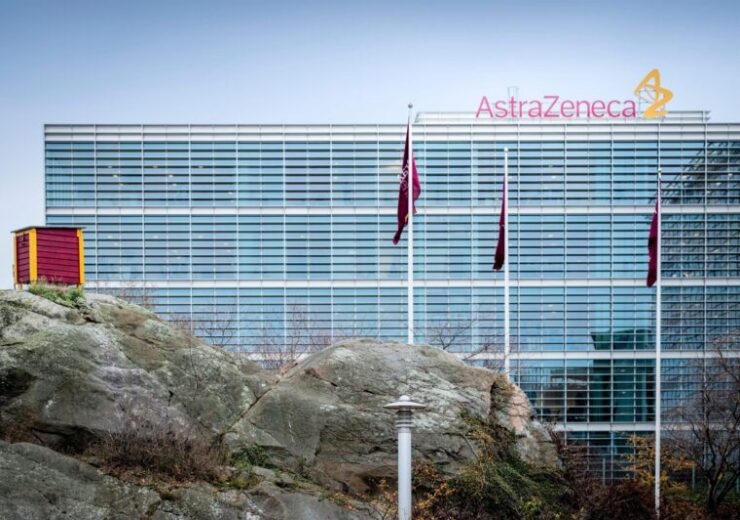The approval is based on results from the ALPHA Phase 3 trial in which Voydeya met the primary endpoint of variation in haemoglobin levels from baseline to week 12

AstraZeneca gets EC approval for Voydeya in the treatment of PNH in certain types of patients. (Credit: AstraZeneca)
The European Commission has approved AstraZeneca’s Voydeya (danicopan) as an add-on to standard-of-care Ultomiris (ravulizumab) or Soliris (eculizumab) for the treatment of paroxysmal nocturnal haemoglobinuria (PNH).
Voydeya is a first-in-class, oral, Factor D inhibitor. It has been approved as add-on therapy for adult PNH patients in the European Union (EU) who have residual haemolytic anaemia.
It previously received breakthrough therapy designation from the US Food and Drug Administration and PRIority MEdicines (PRIME) status from the European Medicines Agency.
Additionally, it has obtained orphan drug designation in the US, the EU, and Japan for PNH treatment.
Voydeya was previously approved as an add-on therapy alongside ravulizumab or eculizumab for specific adult PNH patients in the US and Japan.
Its approval in the EU is based on results from the ALPHA Phase 3 trial and follows the positive opinion of the Committee for Medicinal Products for Human Use in February.
The ALPHA study assessed the efficacy and safety of Voydeya as add-on treatment in patients with PNH who experienced clinically significant extravascular haemolysis (EVH) while subjected to treatment with a C5 inhibitor.
The global, double-blind, multiple-dose, placebo-controlled study randomised patients in a 2:1 ratio to receive either Voydeya or a placebo along with their ongoing C5 inhibitor therapy of Soliris or Ultomiris, for 12 weeks.
According to the results, Voydeya met the primary endpoint of variation in haemoglobin levels from baseline to week 12.
It also met all key secondary endpoints including transfusion avoidance and change in the Functional Assessment of Chronic Illness Therapy – Fatigue score.
The Factor D inhibitor was generally well tolerated with no new safety concerns reported.
Alexion, AstraZeneca Rare Disease CEO Marc Dunoyer said: “For patients with PNH, Voydeya as an add-on therapy has been shown to address signs and symptoms of clinically significant EVH, including anaemia, while maintaining standard-of-care treatment with Soliris or Ultomiris.
“We look forward to making this first-in-class Factor D inhibitor available to patients in Europe and to advancing access around the globe.”
Alexion is currently exploring Voydeya’s potential as a monotherapy for geographic atrophy in a Phase 2 clinical trial.
